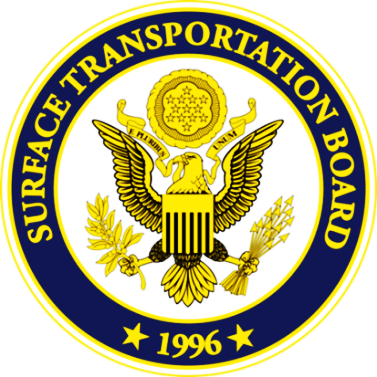
FOR RELEASE
08/19/2021 (Thursday) [PDF Version]
No. 21-36
Contact:
Michael Booth
202-245-1760
FedRelay 1 (800) 877-8339
The Surface Transportation Board today announced that it has selected senior staff member, Neil Moyer, to coordinate the Board’s efforts in preparing to meet new intercity passenger rail on-time performance (OTP) responsibilities.
Over the coming months, Mr. Moyer will work closely with Board Members and STB staff from various offices to develop and begin to implement a comprehensive plan for OTP investigation processing and resource allocation. These activities will include specifying and filling staffing and contracting needs, including forming a unit at the STB focused on passenger rail issues and analysis, developing database capabilities, creating an action plan for addressing potential OTP investigations, and coordinating interagency communications regarding OTP implementation issues. In his role as Passenger Rail Unit Development Coordinator, Mr. Moyer’s work will build on that of the Passenger Rail Working Group, an interdisciplinary group of Board employees formed in April 2021 to assist the Board in evaluating resources needed to fulfill its OTP oversight responsibilities.
Mr. Moyer, currently Passenger Rail Advisor in the STB’s Office of Public Assistance, Governmental Affairs, and Compliance, formerly served as Chief of the Intercity Passenger Rail Analysis Division and Chief of the Financial and Economic Analysis Division at the Federal Railroad Administration (FRA), where he managed the Commercial Feasibility Study of High-Speed Ground Transportation and was primary author of the study report, High-Speed Ground Transportation for America. Mr. Moyer will be detailed to the Office of STB Chairman Martin J. Oberman during his time as coordinator and be supported in his work by Ryan Lee, an attorney in the STB’s Office of Proceedings where he serves as the Assistant to the Director of Proceedings.
“The selection of Neil Moyer to coordinate development of a passenger rail unit at the Board, and marshal other important resources, is a critical step in ensuring the Board’s preparedness to meet its important oversight and adjudicatory responsibilities with regard to passenger rail OTP,” said Chairman Oberman. “Mr. Moyer is well-suited for this responsibility in light of his deep experience in the passenger rail arena and knowledge of passenger rail issues. I am also grateful to Ryan Lee for his assistance and to the Passenger Rail Working Group for laying the foundation for such work. With the Board’s planning efforts well underway, I remain as confident as ever in the Board’s ability to meet its upcoming passenger rail OTP responsibilities and play its part in ensuring the service quality of the Nation’s intercity passenger rail system.”
Section 213 of the Passenger Rail Investment and Improvement Act of 2008 (PRIIA) authorizes, and on eligible complaint requires, the STB to investigate the causes of substandard passenger rail OTP, to identify mitigating measures, and, under specified conditions, to prescribe relief. In late 2020, the FRA, in conjunction with Amtrak, promulgated a “Customer OTP” metric to measure passenger rail OTP, with a standard requiring 80 percent of passenger arrivals at stations to occur within 15 minutes of the scheduled time for any two consecutive calendar quarters. This standard began to apply on July 1, 2021. Because PRIIA requires as a precondition for an STB OTP investigation that there be two consecutive quarters of substandard OTP, there is a possibility that a complaint requesting an STB investigation could be submitted as early as January 2022. Complaints may be brought by Amtrak, by an entity for which Amtrak operates intercity passenger rail service, by an intercity passenger rail operator, or by a host freight railroad over which Amtrak operates.
###
 An official website of the United States government
An official website of the United States government


